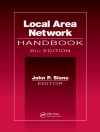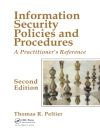This Springer Brief presents the architectures of small-cell networks and recent advances in interference management. The key challenges and values of small cells are first introduced, followed by the reviews of various small-cell architectures and interference management techniques in both heterogeneous CDMA and heterogeneous OFDMA small-cell networks. New adaptive power control and dynamic spectrum access techniques are discussed to promote a harmonized coexistence of diverse network entities in both 3G and 4G small-cell networks. Analytically devised from optimization and game theories, autonomous solutions are shown to effectively manage the intra-tier and cross-tier interferences in small cells. Informative and practical, this Springer Brief is designed for researchers and professionals working in networking and resource management. The content is also valuable for advanced-level students interested in network communications and power allocation.
Table des matières
Dense Small-Cell Networks: Motivations and Issues.- Architectures and Interference Management for Small-Cell Networks.- Distributed Interference Management in Heterogeneous CDMA Small-Cell Networks.- Distributed Pareto-Optimal Power Control in Heterogeneous CDMA Small-Cell Networks.- Joint Power and Subchannel Allocation in Heterogeneous OFDMA Small-Cell Networks.- Distributed Resource Allocation in OFDMA Cognitive Small-Cell Networks.












